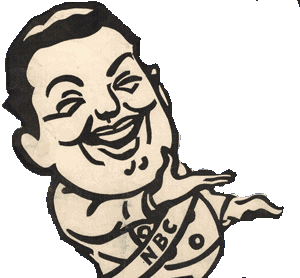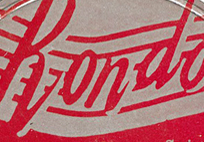Rondo Records and NBC Radio
This color poster,
printed in Minneapolis, was used to promote sales of Rondo Records
between 1947 and 1950. The cartoon character with the NBC sash is
apparently a reference to the group's frequent radio performances on
Midwest NBC affilliates. (Poster provided by Lisa and Mia Yoshida,
Spokane, WA) |
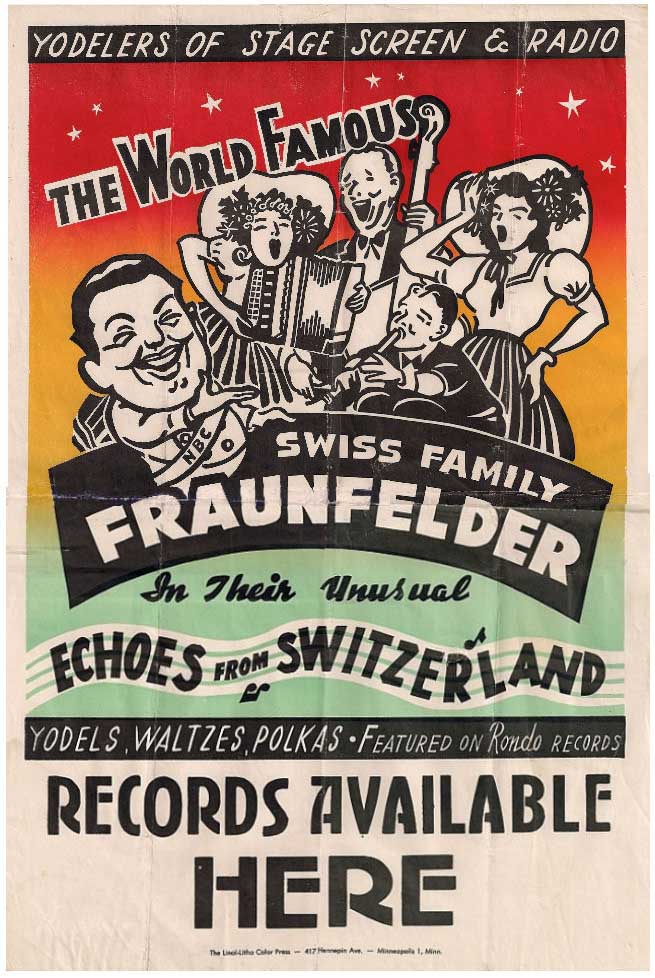
National CBS Broadcast - WISN Radio
|
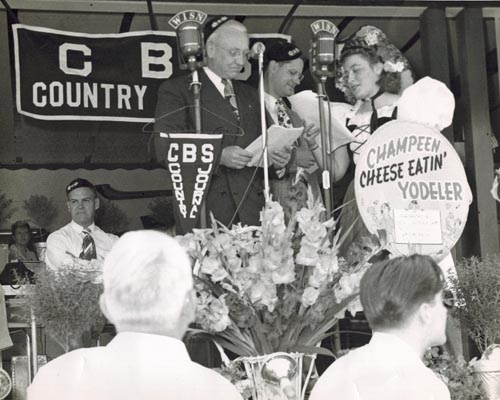 |
Betty was on stage with the Wisconsin Gov. Oscar
Rennebohm in this 1949 WISN (Milwaukee) broadcast from
the Wisconsin State Fair. Rennebohm was apparently
giving the award for "Champeen Cheese Eatin' Yodeler."
Photo courtesy of Buba
Fraunfelder and Erika Williams
|
Electro-Vox Recording
|
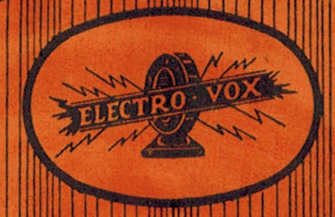 |
The Fraunfelders did some recordings with Electro-Vox,
an earliy recording studio in Los Angeles
that worked closely with NBC Radio for many years.
(See the Music Downloads Page for More)
Photo from a 1938 Fraunfelder record label courtesy of
Richard and Megan Buckley
|
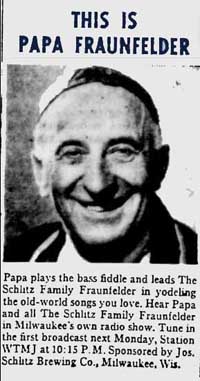
The Milwaukee Journal
July 16, 1949
WTMJ Radio in Milwaukee Wisconsin
The Fraunfelders were
featured on their own WTMJ Milwaukee radio program three
times each week beginning in July, 1949 and likely
ending sometime in December, 1949. The program aired Mondays,
Wednesdays and Fridays at 10:15 p.m. These
handwritten notes on Swiss Family Fraunfelder
letterhead paper were probably written by Papa. The list
of 90 distinct songs performed by the Fraunfelders appears to far outnumber any
recordings in existence today. It includes music
written and arranged by Papa Fraunfelder such as "Hold
Me Tight." But the list is dominated by traditional Swiss
or German tunes and music made more popular by other
artists. For instance, the fast-paced and traditional
"Helena Polka," listed first, was performed by many,
many other musicians in the 1940s including Jimmy Dorsey
and his Orchestra. The list below includes 20
instrumentals, 22 solos by Betty Fraunfelder, 46 yodel
tunes,
a "New Yodel Waltz" performed by Papa, something called
"Blondegirls" and Papa's favorite Christmas
carol, "Silent Night." Among Betty's solos was "You
Can't Be True Dear," a traditional German song released
on Rondo Records by Ken Griffin in 1948 and performed by
many artists including Patti Page on Columbia Records in
1965. The yodel tunes include "Toolie Oolie Doolie,"
composed by Swiss songwriter Artur Beul and made popular
in the United States by the Andrews Sisters. The undated tally shows
that many of these Fraunfelder-performed songs aired repeatedly, up to three
to five times. Counting the repeats, that means
more than 200 Fraunfelder songs were broadcast on the
WTMJ program. A separate list found among family
records of the same era listed 49 solos for Betty
(instead of 22), an indication that the Fraunfelders
performed many more songs. Click
HERE to view the Solo List.
Documents
courtesy of Buba Fraunfelder and Erika Williams.
|
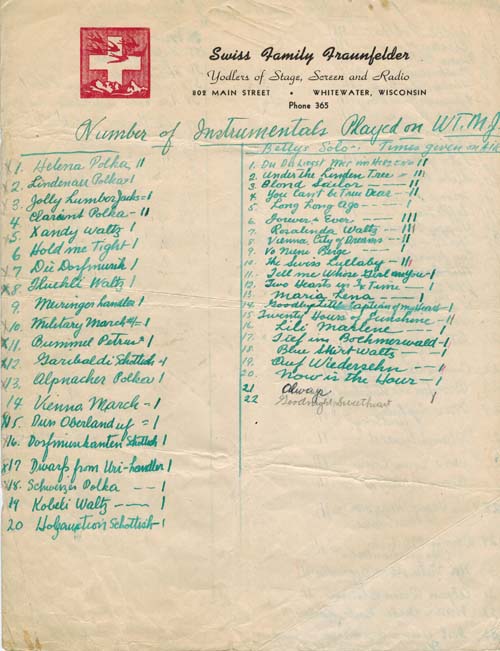 |
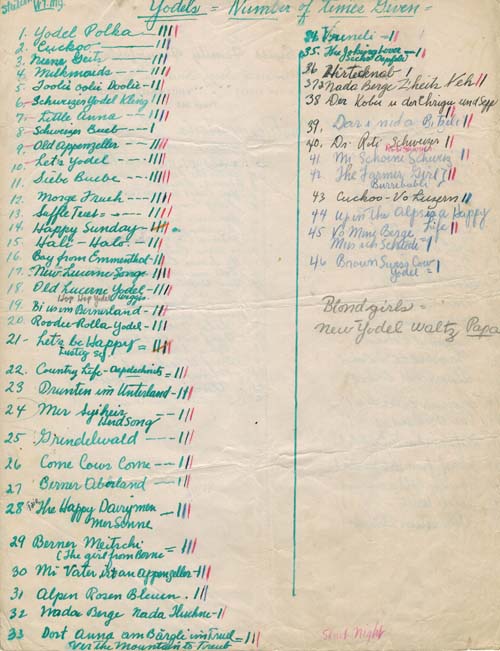 |
WTMJ Program Notes for "Schlitz Family
Fraunfelder"
Below are some surviving partial radio outlines or
script for the Fraunfelder radio program in 1949. It
appears that these programs each contained five or
six performances by Swiss Family Fraunfelder. Many
of the songs were not likely part of their regular
stage performances. Some original Fraunfelder tunes
such as, "Roodee Rulla" and "The Swiss Yodel Polka"
were composed by Papa Fraunfelder. Others were
traditional or new compositions written by other
Swiss or Europeans that were apparently performed by
the Fraunfelders especially for the program
sponsored by Schlitz Brewing Co.
By the 43rd broadcast, the script outline included
some introduction notes by Papa. For instance,
the introduction below for the "Where Alpine Roses
Grow" carries these notes from Papa about the
traditional Swiss folk song: "Alpine roses
prefer to grow on steep mountain walls where they
show their glory with the most glowing colores of
alpine grandeur. This rhododendron variety
refuses to grow down in the lowlands. If the
"sennerin" or "milk maid" wants to be sure that her
young dairyman really loves her, she asks him to
climb a steep wall to pick her the most gorgeous
bunch of alpine roses. If he succeeds, her
heart is his."
The surviving notes indicate there were at least 63
radio programs over about five months in 1949.
|
| |
